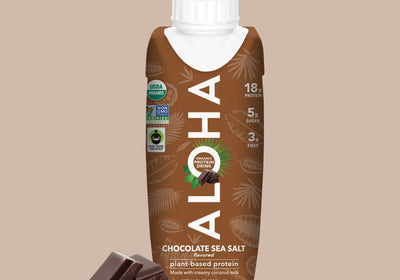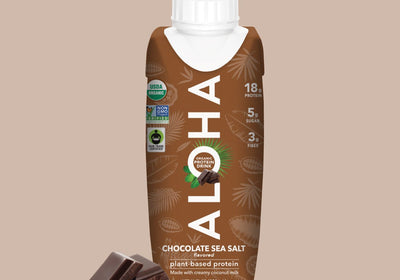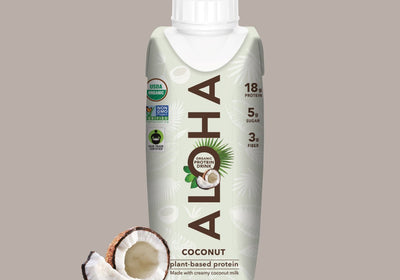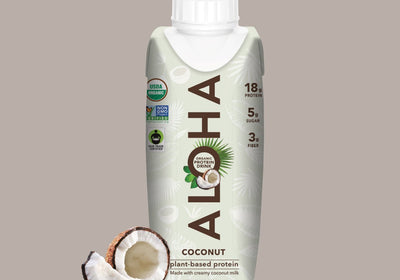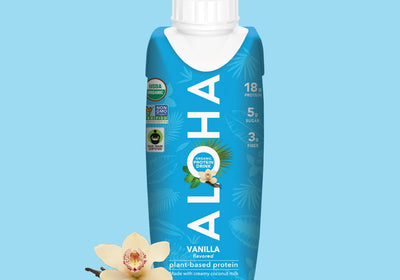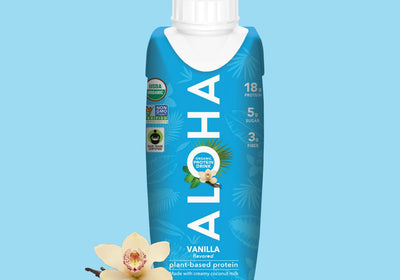Choosing the right protein shake for cancer patients means balancing nutritional value with gentleness and ease of digestion. A well-chosen protein shake can be a nourishing addition, helping to fill potential nutrient gaps and support energy. Here are vital considerations when selecting a protein shake:
- Look for Clean Ingredients: Cancer patients often benefit from shakes free of artificial additives, preservatives, and sweeteners. Organic, non-GMO ingredients provide a clean source of protein that’s easy on the body. Clean ingredients ensure the shake offers pure nutrition without unnecessary or potentially irritating extras.
- Prioritize Complete Plant-Based Proteins: Not all proteins provide the full range of essential amino acids crucial for repair and recovery. Plant-based shakes that blend proteins like pea and brown rice often deliver a complete amino acid profile. This ensures that patients are getting well-rounded protein sources that help support muscle and tissue health.
- Consider Flavor and Texture Preferences: Flavor and texture play a significant role, especially when appetite is limited or taste changes occur. Various flavors allow patients to find an option that feels comforting and enjoyable to consume. Smooth textures and mild, pleasant flavors make protein shakes a convenient, nourishing choice without added stress on the palate.
ALOHA’s Plant-Based Protein Shakes
ALOHA’s plant-based protein shakes are crafted with simplicity, quality, and taste in mind, perfect for those looking to support their wellness journey naturally. Each shake provides a balanced 20 grams of protein sourced from plant ingredients like peas and brown rice, creating a complete protein profile without added fillers or artificial sweeteners.
12oz Vanilla Protein Drink
The Vanilla Protein Drink is a smooth, creamy shake made with 100% USDA Organic ingredients, delivering a delicious and wholesome protein boost. With 20g of plant-based protein, it naturally supports energy and muscle recovery. Certified as a B Corporation, Non-GMO Project Verified, and kosher, it’s a trusted option for those prioritizing health and quality.
12oz Coconut Protein Drink
Our creamy Coconut Protein Shake features a silky, high-quality texture from a Fair Trade Certified coconut milk base. It delivers 20g of plant-based protein from pea and brown rice, along with prebiotics for gut health, electrolytes for hydration, and natural energy from organic coconut MCT oil. This shake is a clean and refreshing way to refuel free from gluten, dairy, soy, stevia, and sugar alcohols.
12oz Chocolate Sea Salt Protein Drink
Our Chocolate Protein Shake offers a top-tier texture with Fair Trade Certified coconut milk, rich cocoa, and naturally sweet coconut sugar. This blend creates a velvety, indulgent shake that’s as satisfying as nourishing. Its smooth, chocolatey flavor is the perfect way to enjoy a delicious, wholesome protein boost.
How To Incorporate Protein Shakes Into A Cancer-Focused Diet
Incorporating protein shakes into a cancer-focused diet can be a convenient way to ensure balanced nutrition without overloading the digestive system. Protein shakes can serve as meal replacements, snacks, or even boosts to existing meals, helping to meet increased protein needs and sustain energy. Here are a few practical ways to make the most of them:
As A Nutritious Breakfast
Starting the day with a protein shake offers an easy way to get essential nutrients, especially when appetite may be low. Simply blend the shake with fruits, leafy greens, or a spoonful of nut butter for added nutrients and flavor. This approach helps ensure patients begin the day with a solid nutritional foundation.
For Midday Energy Support
Protein shakes are great as midday pick-me-ups, providing a gentle source of energy between meals. A small shake in the afternoon can help maintain stamina and keep hunger at bay, making it easier to stay nourished even when full meals feel too heavy. Choosing flavors like Vanilla or Coconut adds a comforting, tasty break.
As A Light Evening Snack
For patients with evening appetite fluctuations, a small protein shake can offer a satisfying, nutrient-dense snack. Sipping a Chocolate Sea Salt or Vanilla shake before bed supports muscle repair and helps maintain energy, making it a comforting way to end the day. It’s a simple addition that promotes restful recovery without being overly filling.
Read also:


 collection header image
collection header image
 collection header image
collection header image


